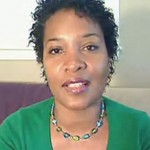Times have changed. My mother raised 5 children in the 1950′s, without a nanny, cook, housecleaner, or babysitter. When she was pregnant with me, she had 3 toddlers under the age of 5. Tired? There wasn’t a WORD for it according to my mother. She sat down one day at the table in the middle of the day with her mother and just started crying. Her mother was shocked, “What’s the matter?” My mother released, “Oh, I guess I am just tired, it all seems so overwhelming!” Of course my stoic grandmother came out with, “You dry up those tears. You have nothing to cry about. You have a house over your head, food on the table, a husband who doesn’t drink and run around with other women. You have nothing to cry about.” Ah yes, yet ANOTHER level of suppression.
Here we are in 2009, with programs allowing “voices to be heard.” My question is, by expressing one’s experience and focusing on the negative can this potentially keep people in the negative? Or is it therapeutic to ‘get it out’ and not keep it trapped in the body? I understand the rationalization of the expression is to ‘release’ the tension, ‘be heard,’ ‘allow one to vent,’ in order to move on. Yet on this particular show, “The Truth About Motherhood,” while there were funny moments throughout and interesting concepts to ponder, I wonder if we are setting up the women to get ready for the dysfunction before it might not happen?
Because I have not bore or raised children, most would say I am not one to even have an opinion. For the past 22 years I’ve counseled, assisted and helped over 1,100 babies come into the world. I speak not as your average woman without child. I am empathetic and have always encouraged my clients, friends and family members to ‘express themselves’ in order to release and move on. I don’t lie about the realities of ‘lack of sleep,’ needing to take care of oneself amidst the demands of the baby and/or their partner. I encourage coping tools, humor, support and expression to counter the extraordinary demands in this high paced society we live in today.
“The Truth About Motherhood” : Monday, April 6, 2009. http://www.oprah.com/article/oprahshow/20090311-tows-mom-truth
Longtime friends Trisha Ashworth and Amy Nobile set out on the motherhood journey together. They had perfect plans—Amy would stay at work after kids; Trisha would have three children, set exactly two years apart. But, like so many best-laid plans, things didn’t work out like they thought. Motherhood, they say, was more overwhelming than they expected. “It was like a bomb hit us,” Amy says. “I didn’t feel I had permission to talk about how hard motherhood really was.” Eventually, Trisha and Amy say they reached their breaking point, and they set out to see if other mothers shared their struggles. After interviewing hundreds of women, they say they’ve heard all the dirty little secrets of motherhood. Their first book, “I Was a Really Good Mom Before I Had Kids,” was based on their findings.
One of the most poignant messages on the program that day from a, ‘Stay At Home Mom:”
Dee-Dee is currently a stay-at-home mom, but she was a working mother once too. “The competition is there because we create it for ourselves,” she says. “There’s really no reason to compete, because [stay-at-home moms] are just as busy as the working mom. The working mom is just as busy as we are. We just tend to sometimes put the focus on the wrong things. We’re all busy 24/7. I consider myself an at-home working mother.” Amy says these wars arise out of our own uncertainties as mothers. “We’re insecure about the choices we’re making—that’s why we’re judging each other,” she says. “We need to give ourselves a collective break.”
That is right everyone needs to give themselves a ‘collective break.’ People don’t these days, the ego runs rampant. The oxygen mask goes on the mother last and unfortunately everyone around her as well as herself is dead because she didn’t put it on herself FIRST. So often women have lost themselves and their relationship with their partner, in the details of everyday life. Family and children come first, work next, life next, maybe partner and then themselves. The last and most exhausted part of who they are. And so these women get sick. All the time they think they are being “strong” because they are able to “do it all.” This is not a reflection of strength, it is weakness.
Kids need to see that you are ‘real.’ One mother’s response to that realness was:
Now that Karen has learned the ropes of motherhood, she’s got some tricks she’s willing to share. “I think the best way to discipline is for your kid to think that you’re just a little bit crazy,” she says. “You’ve got to make them think that this might be the moment that Mom finally loses it.” Karen says she came up with her new method when she once threatened to take away all of her daughter’s toys. “Of course she didn’t believe me, so she [misbehaved] again and I didn’t even yell. … I went in and cleaned out her room. There wasn’t so much as a Lego left,” she says. A day later, Karen put the toys back, but she says those 24 hours did the trick. “Now, all I have to do is get that sort of wild I’m-gonna-take-all-your-toys-away look in my eye, and she straightens up.”
Of course motherhood, with the baby on the outside, creates lessons of surrender:
Melinda Roberts, a mom of three, says she had to learn on her own that motherhood is like a 12-step program. “You’ve got to take it one day at a time sometimes,” she says. “You feel like: ‘If I can get out of bed and get breakfast on the table, I’ll be happy. If I can get them to school, I’ll be happy.’”One major motherhood realization that Melinda says she had with her first child was that she could no longer control everything in her life. “You can no longer choose your activities, your down time, when you get to sleep,” she says. “No matter what you do or where you go, you’re always tethered to this other human being in this unbreakable, incredibly fragile way. Anything you do will affect this child potentially for the rest of their life.”
No program would be complete with out discussion of “Is there Sex after babies?”
One popular topic on Heather’s blog (http://www.dooce.com) is sex and how it changes when you are a mom. “It took seven months [before I had sex after giving birth]. No one had told me that it was going to take that long after what the baby did to me,” Heather says. “Any guy who wants to have unprotected sex? Seven months without it. Just think about that for a minute. Let that number circulate in your head for a little bit.” Karen says the definition of intimacy has changed for her marriage since her child was born. “Intimacy in our house nowadays is my husband and I touching ankles below my daughter’s sleeping form between us,” she says. “It’s really hard to get that loving feeling when you’ve got a 40-pound kid between you.”
No wrong or right, good or bad, a forum for reflection, discussion and support. Where do you stand in YOUR truth about motherhood?








